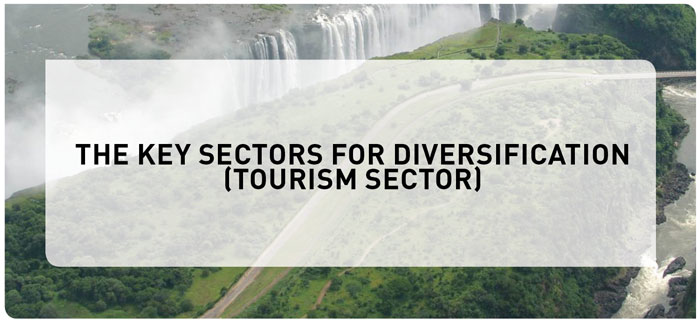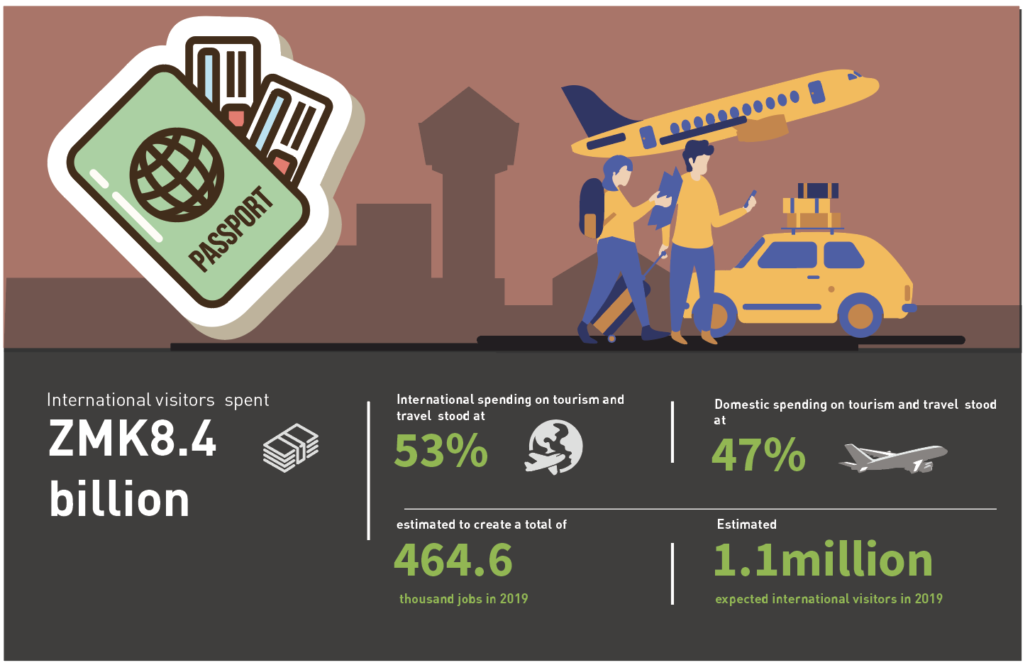TOURISM SECTOR
According to a 2018 report by World Travel and Tourism Council, travel and tourism is Zambia’s fastest-growing national economic sector, contributing US$1,846.9MN (ZMK19.4 billion) to national economy and 318.9 thousand jobs to the Zambian economy in 2018 while posting a +6.3% Gross Domestic Product (GDP), making it the fastest and bullish economic sector in the country.
International visitors alone spent ZMK8.4 billion representing 8.3% of the total Zambian exports, and in terms of spending characteristics, the leisure sectors account for a total of 38% while business was at 62%. Domestic spending on tourism and travel stood at 47% while international spending was at 53%.7 The industry is estimated to create a total of 464.6 thousand jobs in 2019 with an estimated 1.1million expected international visitors in 2019. This is according to the World Travel and Tourism Council’s annual review of the economic impact and social importance of the sector released this month, (World Travel and Tourism Council, 2019).
Zambia remains endowed with numerous tourism resources and attractions however, local tourism has still remained unsatisfactory. Further, the infrastructure, especially roads leading to the tourist sites, needs to be prioritized, in the infrastructure projects currently being implemented in the country. This applies to all the major tourism zones. There is immense potential for growth in the Tourism sector and the diversification effort in the sector can be achieved by integrating the country’s rich cultural heritage into tourism packages beyond traditional ceremonies and promoting domestic tourism . With regards to foreign tourists, the aim must be to lengthen tourists stay to an average of six days from the current four days. These prospects would indeed promote growth in the Tourism sector and ensure increased contribution to GDP.
What has been planned to promote tourism?
- Promoting tourism-related infrastructure is one strategy the Government intends to use to diversify the tourism sector.
- The Government will develop, upgrade and rehabilitate roads, viewing loops and airstrips to and within the major national parks, namely Kafue, Lower Zambezi and the Mosi-oa-Tunya to efficiently interlink the major destinations in the southern tourism circuit and South Luangwa to prolong the tourism season from seven to 12 months per annum.
- The development of arts and culture infrastructure will also be supported, to improve the contribution of the country’s unique natural and cultural heritage to diversify the tourism product. Cultural villages that are currently undergoing construction will be completed.
- The Government will also promote the development and expansion of non-traditional modes of tourism, such as eco- and agro-tourism and cultural and community-based tourism.





